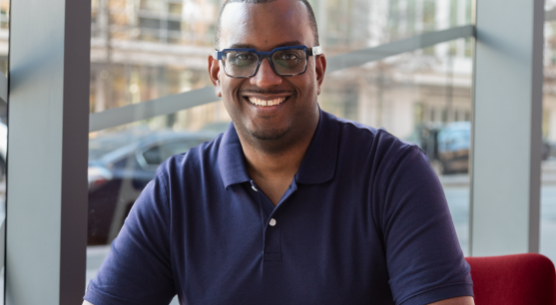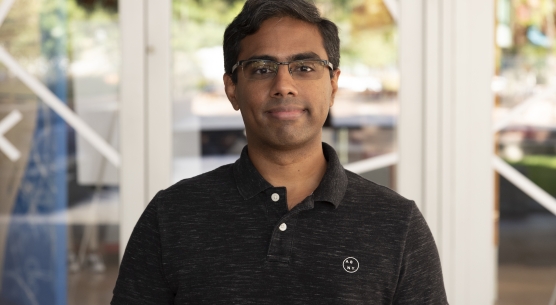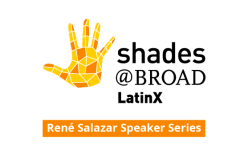
BroadIgnite is a funding opportunity that connects emerging philanthropists with early-career scientists to catalyze potentially transformative ideas. Eligible Broadies can apply anytime, and awards are made on a rolling basis as funds become available. See the BroadIgnite RFA to learn more about the eligibility requirements and application process.
Congrats to the winners of the 2023 BroadIgnite Awards! This innovative program connects early-career philanthropists with early-career scientists to build connections and fund science that may be too risky to receive funding from other sources. Award recipients receive $40,000 in direct-cost research funding. But BroadIgnite is not only a funding mechanism: Recipients also receive professional development training in leadership, budget management, and science communication.
From among 54 talented applicants, there are twelve outstanding awardees:
Amanuella Mengiste

Directed evolution—which mimics the natural evolutionary process in a laboratory setting—holds the potential to accelerate the pace of scientific research, but has yet to be optimized across a range of systems. With her BroadIgnite award, Amanuella aims to tackle this challenge, and optimize directed evolution techniques in systems, ranging from bacteria and yeast to plant and mammalian cells.
Elisa Donnard

All cells have the same genetic code—what determines their type, state, and function is gene expression. However, much of what regulates gene expression is still poorly understood. Elisa's BroadIgnite project seeks to leverage common genetic variants to study regulatory regions of the genome, which control gene expression and are critical to understanding human disease. Specifically, she will use differentiated stem cells to glean insights into how genetic variants drive regulatory changes in liver cells and apply this knowledge to understand metabolic diseases.
Erin Parry

As an oncologist at Dana-Farber Cancer Institute, Erin has seen how quickly a patient’s indolent lymphoma can transform into a drug-resistant or rapidly growing cancer, making it extremely difficult to treat—a transformation poorly understood by scientists. Erin’s BroadIgnite project seeks to change this by using single-cell technologies to pinpoint the cellular changes that occur during this dramatic progression, ultimately identifying targeted treatment opportunities for aggressive lymphomas.
Josh Tycko

Genetic therapies hold tremendous potential to treat diseases and improve human health, but their success relies on accurate systems that can deliver these treatments precisely to specific organs and cell types. As a BroadIgnite awardee, Josh aims to help bring promising genetic medicines closer to the clinic by elucidating the mechanisms by which secreted proteins reach their target destinations in the body—processes that can someday be harnessed to deliver treatments precisely to specific cell types.
Konrad Karczewski

Genome-wide association studies have linked genetic variants to specific phenotypes and disease risks, but we still do not fully grasp how these variants impact biological processes, or have the tools to identify variants that may emerge in the future. With his BroadIgnite project, Konrad plans to address this gap by analyzing the genetics of healthy individuals to detail the landscape of genetic variants—both common and rare—and link them to biological functions. Importantly, he will also build tools to predict new variants, including those that do not exist within the population yet as well as ones that have not been identified in studies so far.
Matt Brown

To tackle rare kidney disease, Matt will draw upon his training in physiology and biomedical engineering and apply multiplexed imaging—which can capture thousands of cellular features simultaneously—to detail the molecular processes that disrupt cellular homeostasis in kidneys. His BroadIgnite work will not only improve our understanding of kidney disorders but also accelerate biomarker discovery, enabling researchers to better understand and measure disease progression.
Mounica Vallurupalli

Blood cancers arise from mutations in bone marrow stem cells, and nearly 50 percent of these mutations are due to defects in splicing—an essential regulatory process where noncoding regions of the genome and coding regions are joined together to generate various proteins. With BroadIgnite support, Mounica, who is an oncologist at the Dana-Farber Cancer Institute, will deploy a novel approach to systematically map how dysfunctions in splicing impact the progression of blood cancers, eventually informing new much-needed treatment strategies.
Salil Bhate

Changes in the cellular organization of tissues impact a range of diseases, including autoimmune disorders, neurodegenerative conditions, and cancers. Indeed, tumor progression hinges upon the cellular composition of surrounding tissues. As a BroadIgnite awardee, Salil will apply AI to molecular and genetic datasets to identify regions of the genome that control how cells are arranged in tissues—work that can someday inform effective new therapies for patients.
Shervin Tabrizi

Physicians currently rely on medical imaging to detect tumors in patients and monitor those in remission, but this method has limitations and a patient’s cancer can go unnoticed until it has already metastasized. To tackle this, Shervin, who is a radiation oncologist at Massachusetts General Hospital, will leverage his BroadIgnite funding to build tools that can detect microscopic levels of tumor DNA in patient blood samples for early, non-invasive cancer diagnosis.
Sophia Liu

The human immune system changes over a lifetime, which can pose challenges to one’s health. For instance, elderly people often have a harder time responding to vaccines compared to the younger population. As a BroadIgnite awardee, Sophia seeks to create spatial transcriptomics tools to capture T cells and B cells in adaptive immunity that drive these changes—in response to disease, aging, or pregnancy—and inform approaches that can rejuvenate immunity in these contexts.
Wengong Jin

How specific antibodies and antigens bind to one another informs a range of treatment strategies, including cancer immunotherapies. However, current methods only allow researchers to evaluate only one or just a few interactions at a time. Wengong seeks to change this with his BroadIgnite award, and plans to build a novel deep-learning model to predict multiple antibody–antigen binding relationships at once—a tool that can advance disease areas, such as cancer, autoimmune disorders, and infectious disease.
Yousef Badran

Somatic mutations occur over the course of the lifetime, and as a gastroenterologist, Yousef investigates how these changes influence benign gastrointestinal diseases. With his BroadIgnite funding, he plans to leverage clinical samples from Massachusetts General Hospital (MGH) and the MGB Biobank to investigate somatic mutations in three different inflammatory gastrointestinal diseases—microscopic colitis, eosinophilic esophagitis, and a colitis caused by cancer immunotherapies—to decipher how they impact these conditions.









